BHCIA Knowledge Mobilization
Knowledge mobilization is an umbrella term that includes a wide range of activities related to both the production and use of research results. Our goal is to make BHCIA-funded research accessible, understandable, and useful for the research community, community groups, our partners, decision makers, health care professionals and older adults and caregivers. In the table below you will find stories, research results and other information from BHCIA-funded research.
| Descriptor of product | Initiative | Date Posted |
|---|---|---|

What happens when leading brain health and cognitive impairment research teams come together to collaborate on Knowledge Mobilization (KM)? They spark ideas, share breakthroughs, and lay the groundwork for powerful next steps in getting knowledge into the hands of those who need it most. Read the "What We Heard" Report from our first BHCIA Research Initiative KM Forum, where Knowledge Synthesis and Mobilization grantees gathered virtually to exchange insights, highlight best practices, and explore innovative strategies for sharing their research. |
Knowledge Synthesis and Mobilization Grants: Brain Health and Reduction of Risk for Age-related Cognitive Impairment, part of the BHCIA Research Initiative, in partnership with the Institute of Gender and Health (CIHR-IGH), the Institute of Circulatory and Respiratory Health (CIHR-ICRH), the Azrieli Foundation, including the Canadian Centre for Caregiving Excellence, and the Weston Family Foundation. |
2025-10-27 |

Dr. Habib Chaudhury and his team at Simon Fraser University conducted two World Cafes, focus group discussions and environmental audits of neighbourhood environments to raise awareness about mobility and social participation issues of people living with dementia in the community. This Dementia-inclusive Streets and Community Access, Participation and Engagement (DemSCAPE) video showcases the experiences of three DemSCAPE study participants and how people living with dementia find their ways, feel safe, and enjoy meaningful interactions in their neighbourhoods. This knowledge mobilization project is part of the larger Dementia-inclusive Streets for Community Access, Participation, and Engagement (DemSCAPE) project. Learn more by visiting DemSCAPE Knowledge Mobilization and Dementia-inclusive Planning and Design Guidelines, available through WHO's Global Dementia Observatory Knowledge Exchange Platform. Learn more about the BHCIA Knowledge Synthesis and Mobilization Grants research teams. |
Knowledge Synthesis and Mobilization Grants: Brain Health and Reduction of Risk for Age-related Cognitive Impairment, part of the BHCIA Research Initiative, in partnership with the Institute of Gender and Health (CIHR-IGH), the Institute of Circulatory and Respiratory Health (CIHR-ICRH), the Azrieli Foundation (including the Canadian Centre for Caregiving Excellence) and the Weston Family Foundation. |
2025-07-23 |

Dr. Anna Gagliardi and her team at the University Health Network synthesized research on strategies used to raise awareness among immigrant women on how to reduce dementia risk. Learn more about the synthesis by visiting the Reducing dementia risk in immigrant women webpage, and by viewing the Infographic [ PDF (570 KB) - external link ], Policy Brief [ PDF (422 KB) - external link ] and Webinar. Learn more about the BHCIA Knowledge Synthesis and Mobilization Grants research teams. |
Knowledge Synthesis and Mobilization Grants: Brain Health and Reduction of Risk for Age-related Cognitive Impairment, part of the BHCIA Research Initiative, in partnership with the Institute of Gender and Health (CIHR-IGH), the Institute of Circulatory and Respiratory Health (CIHR-ICRH), the Azrieli Foundation (including the Canadian Centre for Caregiving Excellence) and the Weston Family Foundation. |
2025-07-23 |
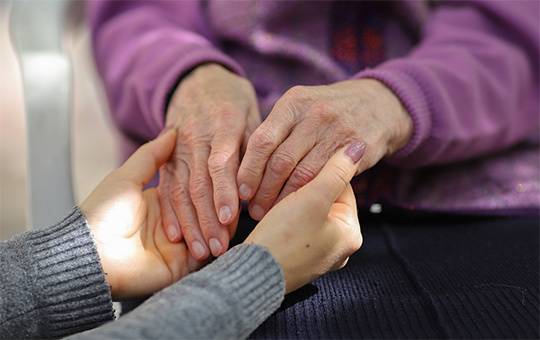
Dr. Matthias Hoben and his team at York University conducted a realist review, to identify and synthesize the literature on the potential effects of adult day programs caring for persons living with dementia, on program attendees and their family/friend caregivers, including an evaluation of what does or does not work for whom and under what circumstances. Learn more about this research by visiting the Adult Day Programs study webpage. Policy Brief: Improving Support for Adult Day Programs Caring for Persons Living With Dementia in the York Region [ PDF (489 KB) - external link ]. Learn more about the BHCIA Knowledge Synthesis and Mobilization Grants research teams. |
Knowledge Synthesis and Mobilization Grants: Brain Health and Reduction of Risk for Age-related Cognitive Impairment, part of the BHCIA Research Initiative, in partnership with the Institute of Gender and Health (CIHR-IGH), the Institute of Circulatory and Respiratory Health (CIHR-ICRH), the Azrieli Foundation (including the Canadian Centre for Caregiving Excellence) and the Weston Family Foundation. |
2025-07-23 |

Dr. Laura Middleton and her team at the Schlegel-UW Research Institute for Aging, University of Waterloo, identified and summarized research related to the effectiveness of healthy lifestyle interventions, such as physical activity and nutrition, for people living with dementia in the community. To learn more, visit these resources: Physical Activity: Guidance to community-dwelling people living with dementia and their care partners on the benefits of physical activity and how to get active. Service Providers: Guidance for nutrition risk screening of people with dementia and where to refer those at malnutrition risk. Healthy Eating: Information for community-dwelling people with dementia and care partners on the types of programs/services that can improve the nutritional status of people with dementia. Research project webpage: Beyond Dementia Prevention: Understanding Impact and Knowledge Gaps Related to Lifestyle Interventions for People with Dementia. Learn more about the BHCIA Knowledge Synthesis and Mobilization Grants research teams. |
Knowledge Synthesis and Mobilization Grants: Brain Health and Reduction of Risk for Age-related Cognitive Impairment, part of the BHCIA Research Initiative, in partnership with the Institute of Gender and Health (CIHR-IGH), the Institute of Circulatory and Respiratory Health (CIHR-ICRH), the Azrieli Foundation (including the Canadian Centre for Caregiving Excellence) and the Weston Family Foundation. |
2025-07-23 |

Dr. Natasha Rajah and her team at Toronto Metropolitan University, are leading a group of scientists, clinicians, and knowledge users, including persons with lived and living experience, to increase our understanding of how biology, life experiences, and lifestyle choices affect brain health trajectories. Learn more by visiting: Website: Brain Resilience and Diversity in Aging and Dementia Collaboratory Article: Mind over Matter magazine [ PDF (12.9 MB) - external link ] YouTube: Symposium recordings Learn more about the BHCIA Knowledge Synthesis and Mobilization Grants research teams. |
Knowledge Synthesis and Mobilization Grants: Brain Health and Reduction of Risk for Age-related Cognitive Impairment, part of the BHCIA Research Initiative, in partnership with the Institute of Gender and Health (CIHR-IGH), the Institute of Circulatory and Respiratory Health (CIHR-ICRH), the Azrieli Foundation (including the Canadian Centre for Caregiving Excellence) and the Weston Family Foundation. |
2025-07-23 |
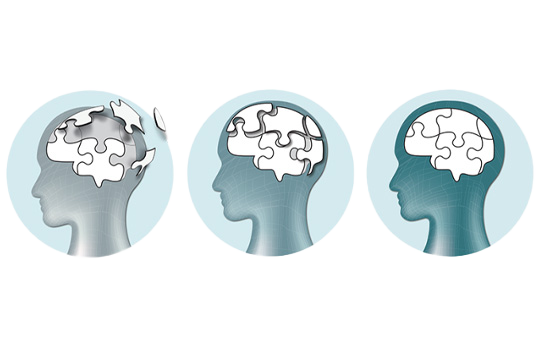
These 16 BHCIA Knowledge Synthesis and Mobilization grants showcase the latest research on promoting brain health and reducing the risk of age-related cognitive impairment in Canada. Each project helps make existing knowledge more accessible and actionable for communities, caregivers and policy makers. |
Knowledge Synthesis and Mobilization Grants: Brain Health and Reduction of Risk for Age-related Cognitive Impairment, part of the BHCIA Research Initiative, in partnership with the Institute of Gender and Health (CIHR-IGH), the Institute of Circulatory and Respiratory Health (CIHR-ICRH), the Azrieli Foundation (including the Canadian Centre for Caregiving Excellence) and the Weston Family Foundation. |
2025-06-20 |

Read how research is being put into action to help reduce the risk of dementia in this Canadian Longitudinal Study on Aging (CLSA) knowledge mobilization story. Lead author and PhD candidate, Surim Son, received funding from the Canadian Consortium on Neurodegeneration in Aging to share practical ways to lower dementia risk based on the latest research. Here are the leading controllable factors that contribute to Alzheimer’s disease and other types of dementia, as reported by the CBC: Exercise, weight loss and 10 other ways to avoid dementia, according to London scientists. |
Canadian Consortium on Neurodegeneration in Aging, part of the BHCIA Research Initiative, CIHR Institute of Aging. The Canadian Longitudinal Study on Aging (CLSA), is supported by IA |
2025-06-20 |

Dr. Mark Bayley and his team at University Health Network highlight the need to support caregivers of people with brain injuries and identified evidence-based recommendations to improve their health and make caregiving EASIER (empower-advocate-support-improve-educate-research). Learn more in this Policy Report [ PDF (912 KB) - external link ] and Infographic [ PDF (6.0 MB) - external link ] on the Neurotrauma Care Pathways website. Learn more about the BHCIA Knowledge Synthesis and Mobilization Grants research teams. |
Knowledge Synthesis and Mobilization Grants: Brain Health and Reduction of Risk for Age-related Cognitive Impairment, part of the BHCIA Research Initiative, in partnership with the Institute of Gender and Health (CIHR-IGH), the Institute of Circulatory and Respiratory Health (CIHR-ICRH), the Azrieli Foundation (including the Canadian Centre for Caregiving Excellence) and the Weston Family Foundation. |
2025-06-19 |

Dr. Tatyana Mollayeva and her team at University Health Network are exploring how social, economic, and cultural factors affect brain health outcomes after Traumatic Brain Injury. Learn more in this flip booklet that includes progress on the project and an overview of traumatic brain injury. Learn more about the BHCIA Knowledge Synthesis and Mobilization Grants research teams. |
Knowledge Synthesis and Mobilization Grants: Brain Health and Reduction of Risk for Age-related Cognitive Impairment, part of theBHCIA Research Initiative, in partnership with the Institute of Gender and Health (CIHR-IGH), the Institute of Circulatory and Respiratory Health (CIHR-ICRH), the Azrieli Foundation (including the Canadian Centre for Caregiving Excellence) and the Weston Family Foundation. |
2025-06-19 |

|
Canadian Consortium on Neurodegeneration in Aging, part of the BHCIA Research Initiative, CIHR Institute of Aging |
2025-01-27 |

|
Canadian Consortium on Neurodegeneration in Aging, part of the BHCIA Research Initiative, CIHR Institute of Aging |
2025-01-22 |
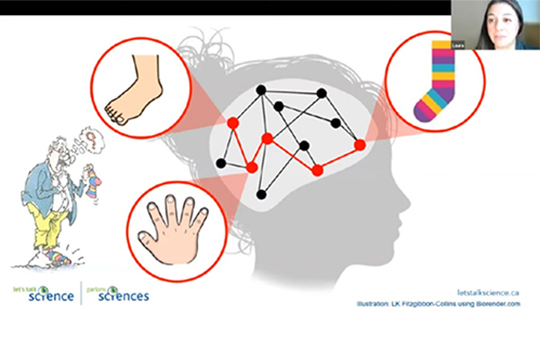
|
Canadian Consortium on Neurodegeneration in Aging, part of the BHCIA Research Initiative, CIHR Institute of Aging |
2025-01-20 |
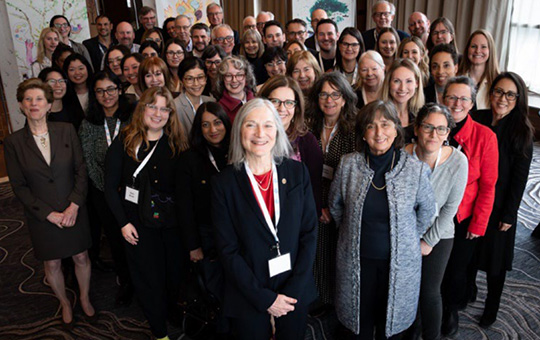
|
Canadian Consortium on Neurodegeneration in Aging, part of the BHCIA Research Initiative, CIHR Institute of Aging |
2025-01-15 |
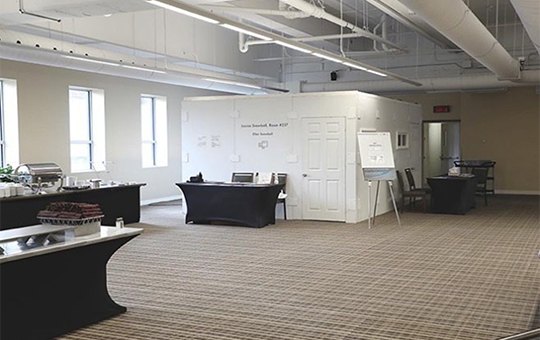
|
Canadian Consortium on Neurodegeneration in Aging, part of the BHCIA Research Initiative, CIHR Institute of Aging |
2025-01-13 |
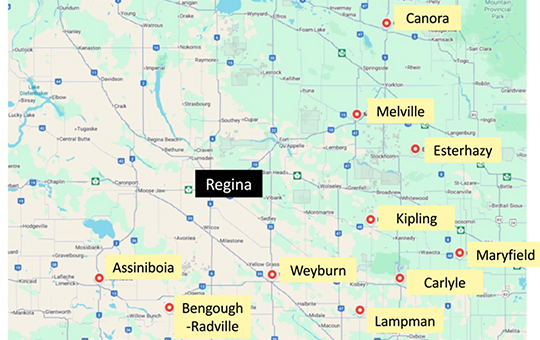
|
Canadian Consortium on Neurodegeneration in Aging, part of the BHCIA Research Initiative, CIHR Institute of Aging |
2024-12-06 |

|
Wilfred and Joyce Posluns' Chair in Women's Brain Health and Aging, part of the BHCIA Research Initiative, is a partnered initiative between the Posluns Family Foundation, Women's Brain Health Initiative, the Centre for Aging and Brain Health Innovation, the Ontario Brain Institute, and CIHR |
2024-10-07 |
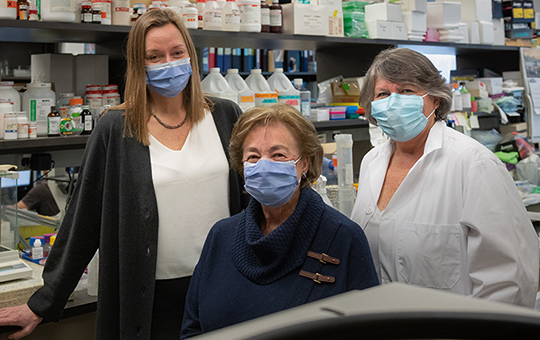
|
Canadian Consortium on Neurodegeneration in Aging, part of the BHCIA Research Initiative, CIHR Institute of Aging |
2023-08-15 |
- Date modified: